Tips for Travelling with Neurodiverse Kids
Travelling with a neurodiverse child? Check out our top travel tips for travelling with neurodiverse kids.
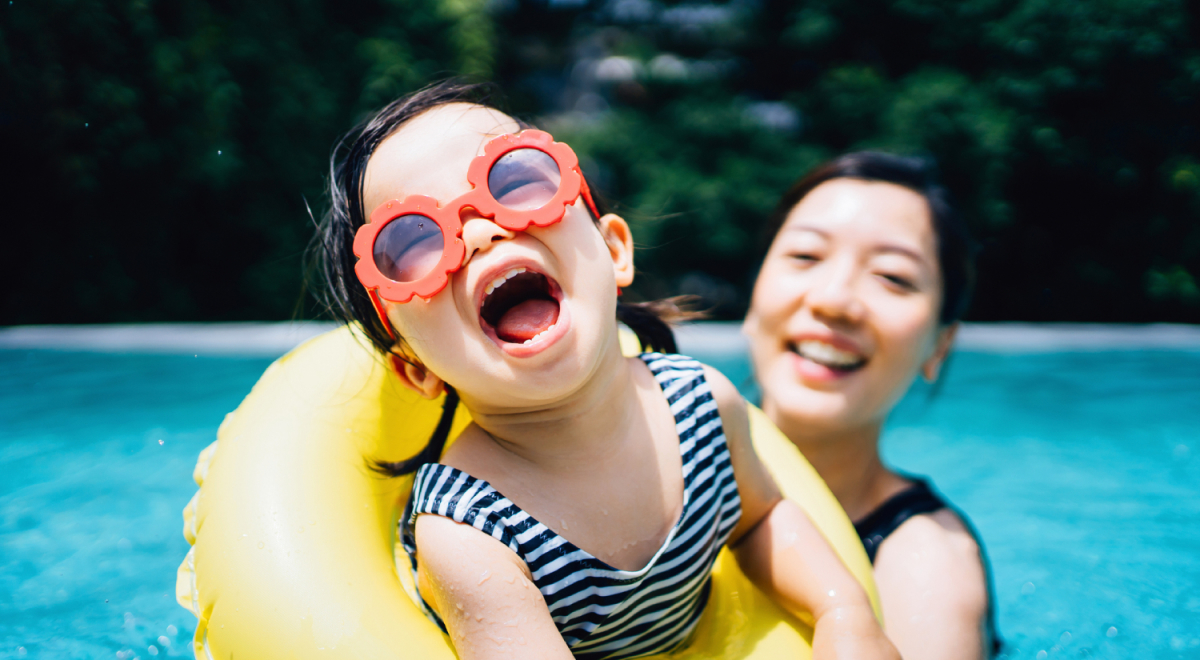
4min read
Published 24 March 2023
Travelling with a neurodiverse child? Check out our top travel tips for travelling with neurodiverse kids.
Travel can create some of the best memories for families that will last a lifetime. It’s fair to say though, travelling with little ones can be somewhat stressful at the best of times. Add in a long line and a delayed flight and it can be a trying time for many. With school holidays approaching, families will be getting ready to go on their eagerly awaited escape. For those families with alternate needs, including neurodiverse children, this experience can be tough even before the packing begins.
April 2nd also marks World Autism Awareness Day, an important time to focus on accepting, supporting and including autistic people, and advocating for their rights. The travel sector has a responsibility to be more inclusive and accommodating to neurodivergent people, as all people deserve to be able to go on holidays.
The good news is the travel sector is getting better at adapting and catering to those with alternative needs. And to help a little bit more, we have written a list of top tips to help you plan the best holiday when travelling with neurodiverse children.
Coming up...
-
Preparing Children for The Trip
-
How Do You Fly with A Child with Autism?
-
Have Tools Ready to Help Children Cope
-
When Should I Travel with My Neurodiverse Child?
-
Where are the best places to go on holiday with my neurodiverse child?
1. Preparing Children for the Trip
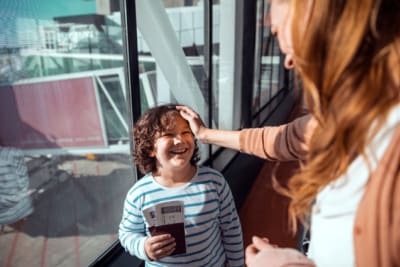
Mother and son waiting to board their plane. Photo: Getty Images
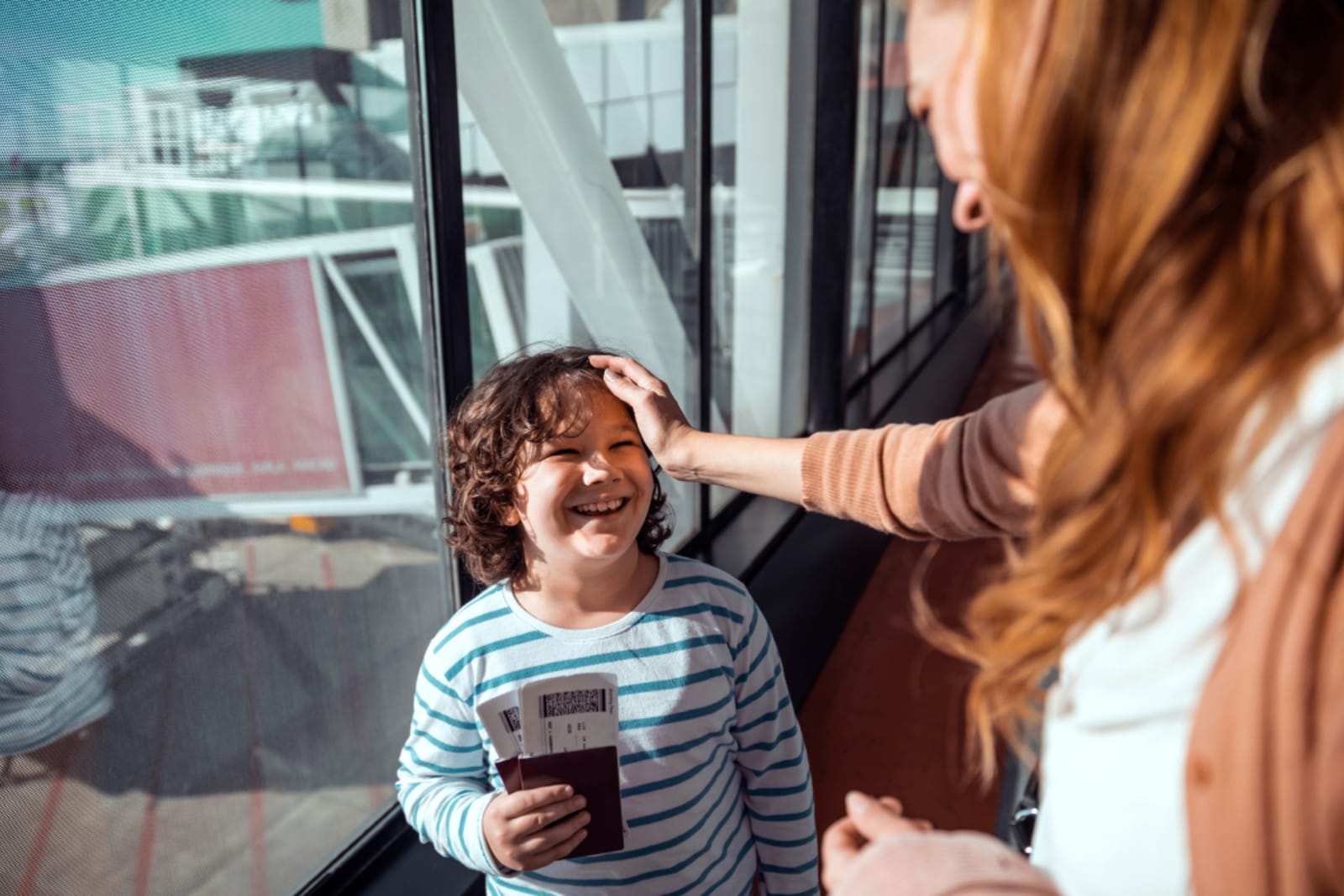
Mother and son waiting to board their plane. Photo: Getty Images

Mother and son waiting to board their plane. Photo: Getty Images
Many children on the autism spectrum are visual learners. Use Teaching Stories and visual supports to show what to expect at the airport, what the airplane will look like, where you will be staying, etc. You can find images online to help you to create visual supports for your child. Print them out so your child can access them easily.
Waiting patiently in long queues can be a challenge for us grown-ups, but this experience can be particularly challenging for neurodivergent kids. Some strategies to help might be having a lollipop ready to unwrap when their patience is running low, or having a favourite video downloaded and ready to view on a device.
2. How Do You Fly with A Child with Autism?
In New Zealand, Auckland, Wellington, New Plymouth, Christchurch and Queenstown airports have adopted the Hidden Disabilities Sunflower Lanyard Scheme. If you, or someone you are travelling with has a hidden disability, you can choose to wear a Sunflower Lanyard and make your disability visible to airport staff. The Sunflower Scheme offers you a discrete way to indicate to staff that your child has a hidden disability and may need a little extra support, guidance, or time with the airport process.
Prior to your travel, you can request a free lanyard from the airport, which you can collect at the airport to keep and use on future trips. If you're departing from other international airports, or would like to know more, visit the Hidden Disabilities website. Many airlines can offer extra assistance when boarding or disembarking your aircraft, such as priority boarding. Make sure you ask your Flight Centre travel expert for more information.
3. Have Tools Ready to Help Children Cope
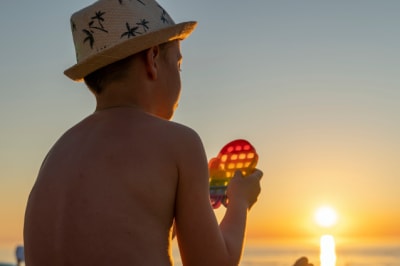
Fidget or pop it toys are a great distraction. Image credit: Getty Images
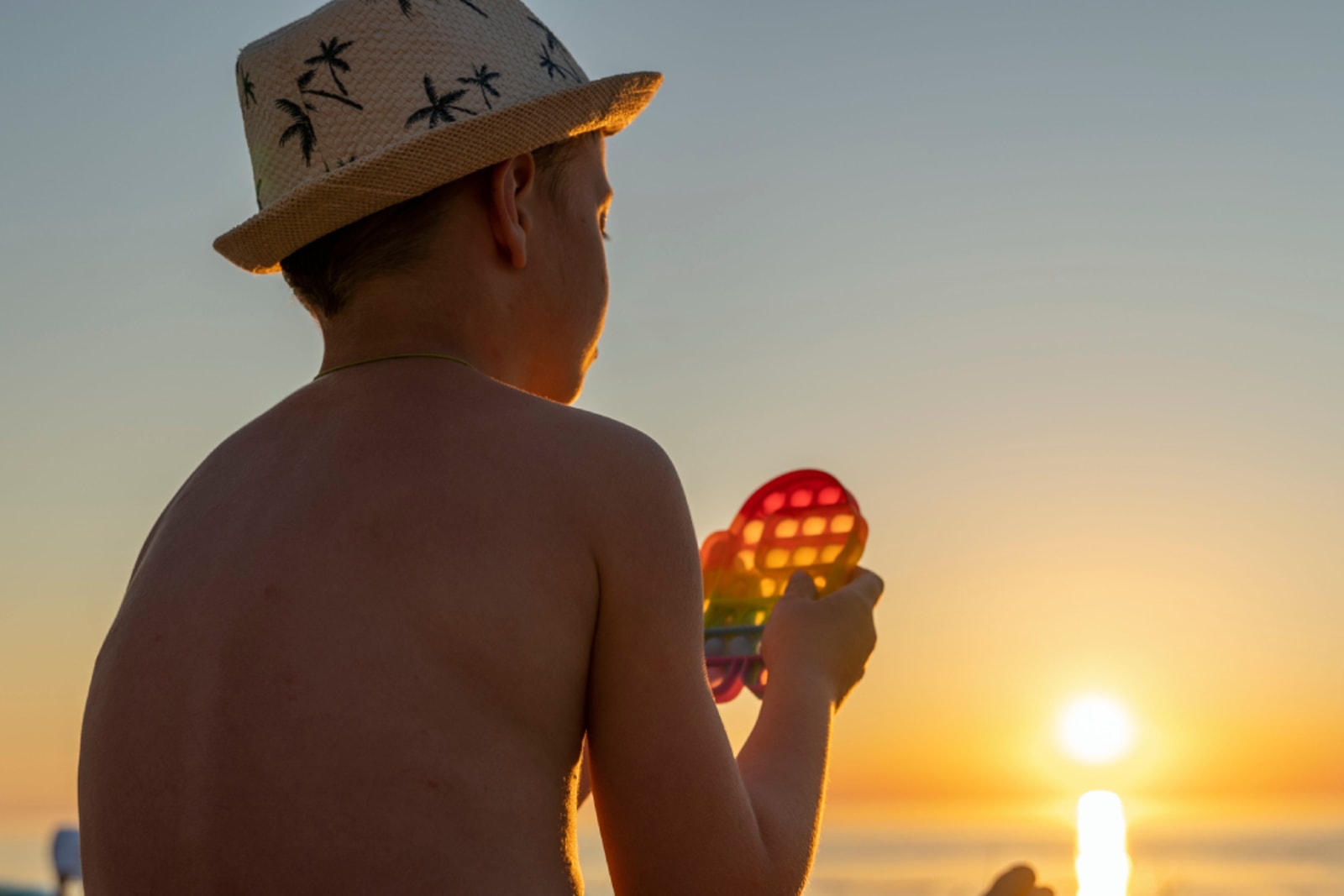
Fidget or pop it toys are a great distraction. Image credit: Getty Images

Fidget or pop it toys are a great distraction. Image credit: Getty Images
Airports, airplanes and transfers can be triggering for those on the autism spectrum. These environments can easily overload delicate sensory systems, heighten anxiety, and create a sense of overwhelm in some children. Ensuing your child has appropriate Sensory Supports such as ear defenders, fidget toys, scented markers, weighted vests can help your child to cope with intensity of new environments.
Unpredictability can be very difficult for kids on the autism spectrum to process. And travel, by its very nature, can be unpredictable at times. As a caregiver, you can increase feelings of stability and predictability by ensuring your child has access to favourite foods, special toys, and their favourite TV shows or movies wherever possible. Download their favourites onto a streaming app, so that it can be viewed offline.
4. When Should I Travel with My Neurodiverse Child?
If you have a young person who is particularly sensitive to loud and busy environments, consider travelling in the off season. Shorter queues, quieter airplanes can all contribute to a more enjoyable travel experience.
Transitions from A to B can be difficult for families with neurodivergent children. Consider the number of transitions in getting to and from your destination, as too many transitions may overwhelm your child (and you!).
5. Where are the best places to go on holiday with my neurodiverse child?

A trip within New Zealand is a great option. Image credit: Getty Images

A trip within New Zealand is a great option. Image credit: Getty Images

A trip within New Zealand is a great option. Image credit: Getty Images
If the thought of travelling internationally with your neurodivergent child overwhelms you, consider travelling within New Zealand. This gives your child the opportunity to experience airports, fly on an airplane, and experience travel, with the benefit of shorter flight-times, less transitions, and more predictability (you’ll probably still be able to buy your child’s favourite foods at the local supermarket).
Children on the autism spectrum often eat a more restricted diet, and sensory processing differences can make mealtimes in restaurants challenging. If this sounds familiar, consider self-catering accommodation. This gives you more control over mealtimes, and a controlled environment for your child to eat in. If you do wish to travel overseas, try to find places that offer direct flights/transfers to the holiday destination (we can help with that too!).
With the right planning and preparation in advance, you can make sure all members of your family have an enjoyable holiday. It takes a few extra steps and time, but travelling with neurodivergent children can definitely be an amazing travel experience.
Check out our hottest deals and if you need more hands-on guidance, let our travel experts help you plan the perfect holiday with your child - get a quote here!

